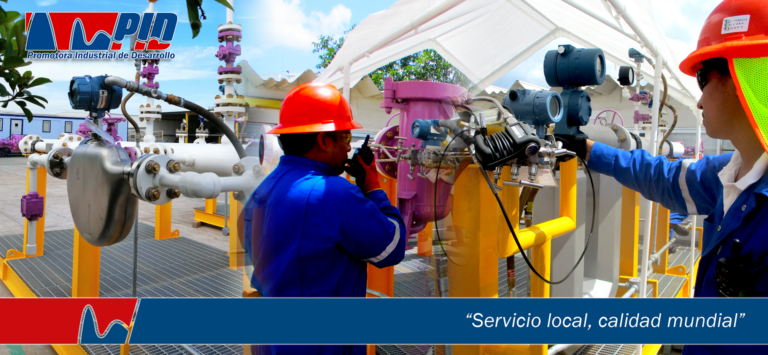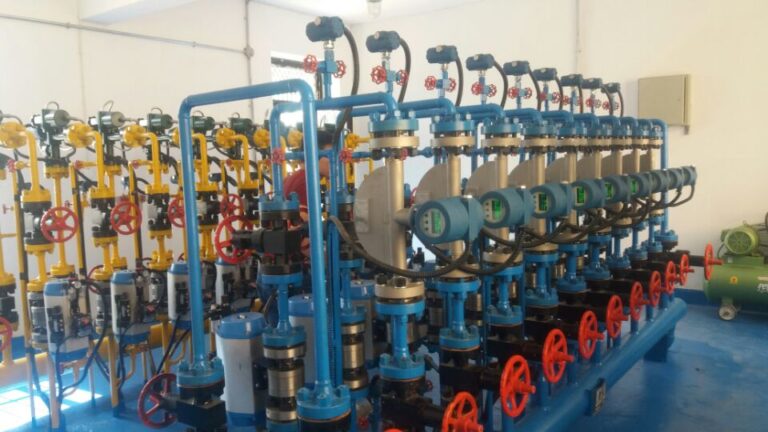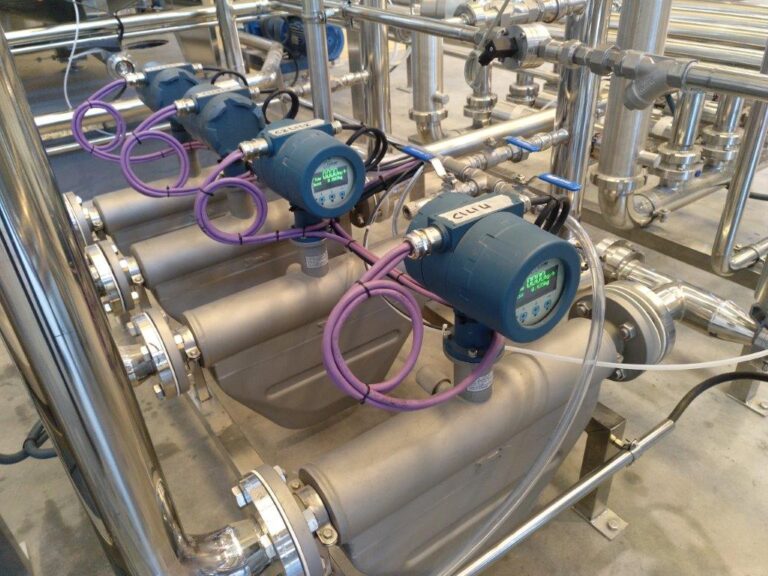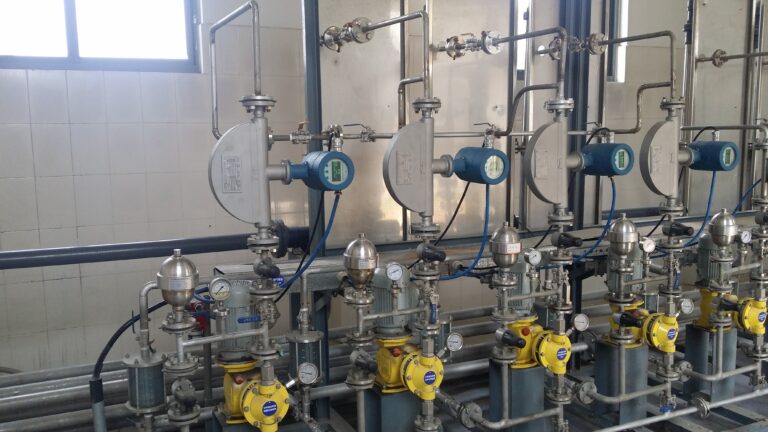When ordering a mass flow meter, it is essential to carefully assess several factors to ensure that the selected device meets the specific needs of the application and operates reliably over time. Mass flow meters are widely used in various industries such as chemical processing, food and beverage, pharmaceuticals, and oil and gas. Each of these applications has unique requirements, and the right mass flow meter choice can significantly impact process accuracy, efficiency, and safety. Below are the key considerations to keep in mind when ordering a mass flow meter.

1. Fluid Type and Characteristics
The type of fluid being measured plays a crucial role in the selection of the appropriate mass flow meter. Different fluids require different types of flow meters, and selecting the wrong one could lead to inaccurate measurements or equipment failure.
Gas, Liquid, or Steam: Mass flow meters can be designed specifically for gases, liquids, or steam. Gas flow measurement is often more challenging due to changes in density and flow conditions. Liquids, on the other hand, may be affected by factors like viscosity, density, and pressure.
Fluid Properties: Consider the physical and chemical properties of the fluid, such as:
- Corrosive fluids: If the fluid is chemically aggressive or corrosive (e.g., acids, alkalis), materials used in the construction of the flow meter should be resistant to corrosion, such as stainless steel or special alloys.
- Viscosity: For high-viscosity fluids (e.g., oils, slurries), the flow meter should be chosen to handle thick or sticky substances without clogging or causing inaccurate readings.
- Temperature and Pressure: Ensure that the meter is capable of operating within the required temperature and pressure ranges of the process. High-temperature or high-pressure applications may need special materials and design considerations.

2. Flow Range and Accuracy
Mass flow meters must be able to accurately measure the flow rates within the range required by the application.
Flow Rate Range: It is critical to determine the expected flow range for the fluid being measured. The flow meter must be able to measure both the minimum and maximum flow rates accurately. If the flow is highly variable, you should opt for a meter with a wide dynamic range and a high turndown ratio.
Accuracy and Precision: The precision of mass flow meters is often measured in terms of the percentage of error relative to the flow rate. In critical applications, such as dosing or mixing, it is essential to choose a meter with high accuracy. Additionally, check the repeatability of the meter to ensure that it provides consistent results under the same conditions.
3. Pipe Size and Installation Requirements
The physical dimensions of the installation site and the mass flow meter are important to ensure proper fit and ease of installation.
Pipe Size Compatibility: Mass flow meters come in various sizes to match standard pipe diameters. It is essential to ensure that the meter fits the piping system, both in terms of size and connection type (flanged, threaded, or sanitary connections).
Installation Orientation and Space Constraints: Some flow meters have specific installation requirements, such as a preferred orientation (horizontal or vertical) or a minimum distance from bends, valves, or fittings. Be sure to check the manufacturer’s guidelines for installation to avoid interference with the flow profile.
4. Operating Temperature and Pressure
Different industrial applications can expose the mass flow meter to extreme environmental conditions. Ensure that the device is designed to handle the specific operating temperature and pressure ranges:
Temperature: Many mass flow meters are designed to work within a specific temperature range. If the fluid temperature is high or low, special materials or components may be needed (e.g., heat shields, temperature compensation).
Pressure: Similarly, the meter must be able to withstand the process pressure. In high-pressure systems, you may need to choose a meter with a reinforced body or specialized seals to prevent failure.

5. Signal Output and Electrical Requirements
Most modern mass flow meters offer various forms of signal output that allow integration with control systems, data acquisition devices, or alarms.
Signal Type: Choose a meter that provides the right type of signal output for your system, such as analog signals (e.g., 4-20 mA), digital outputs (e.g., HART, Modbus), or pulse outputs. These signals will allow the mass flow data to be communicated to a central controller or monitoring system.
Power Supply: Consider the electrical power requirements of the mass flow meter, including voltage and current. Many devices operate on low-voltage DC power, but some industrial systems may use AC power. Also, ensure that the flow meter’s power needs align with your existing infrastructure.
6. Durability and Maintenance
The durability and ease of maintenance of the mass flow meter are important to ensure reliable long-term operation.
Material Durability: Consider the materials used in the construction of the meter. For harsh environments, such as those involving corrosive or abrasive fluids, ensure that the flow meter is made from resistant materials like stainless steel or ceramics.
Ease of Maintenance: Some mass flow meters require periodic maintenance, such as cleaning or calibration. It is essential to select a meter that allows for easy disassembly and servicing. Additionally, the supplier should provide clear instructions on maintenance procedures and schedules.
7. Certifications and Regulatory Compliance
In many industries, mass flow meters must meet specific regulatory and safety standards to ensure their performance and reliability.
Industry Standards: Depending on your application, you may need a flow meter that complies with standards like ISO 9001, ATEX (for explosion-proof environments), or FDA approval (for food and pharmaceutical applications).
Accuracy Certification: For applications that require highly accurate flow measurements, such as custody transfer or billing, ensure that the mass flow meter is certified by regulatory bodies like OIML (International Organization of Legal Metrology) or NIST (National Institute of Standards and Technology).

8. Cost and Supplier Support
Cost considerations are essential when selecting a mass flow meter, but it should not come at the expense of performance and reliability.
Budget: While it is tempting to choose the cheapest option, keep in mind that the accuracy, durability, and reliability of the meter are critical to the success of the process. Look for a balance between cost and quality that fits within your project’s budget.
Supplier Support and Warranty: Investigate the reputation of the supplier and their level of support. A reliable supplier should offer a good warranty, responsive customer service, and post-installation support such as troubleshooting and calibration services.

Conclusion
Ordering a mass flow meter requires careful evaluation of several factors, including fluid type, flow range, pressure, temperature, signal output, and the meter’s durability. It is also important to consider the installation requirements, certifications, and ongoing maintenance needs. By understanding these critical aspects, you can select the right mass flow meter for your specific application, ensuring accurate and reliable flow measurement for years to come. Always work closely with the manufacturer or supplier to ensure that the product meets your technical and operational requirements.
